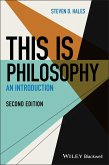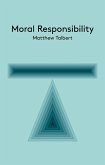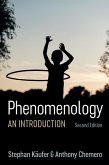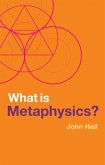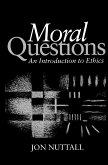GWF Hegel has long been considered one of the most influential and controversial thinkers of the nineteenth century, and his work continues to provoke debate in contemporary philosophy. This new book provides readers with an accessible introduction to Hegel's thought, offering a lucid and highly readable account of his Phenomenology of Spirit, Science of Logic, Philosophy of Nature, Philosophy of History, and Philosophy of Right. It provides a cogent and careful analysis of Hegel's main arguments, considers critical responses, evaluates competing interpretations, and assesses the legacy of Hegel's work for philosophy in the present day. In a comprehensive discussion of the major works, J.M Fritzman considers crucial questions of authorial intent raised by the Phenomenology of Spirit, and discusses Hegel's conceptions of necessity and of philosophical method. In his presentation of Hegel's Logic, Fritzman evaluates the claim that logic has no presuppositions and examines whether this endorses a foundationalist or coherentist epistemology. Fritzman goes on to scrutinize Hegel's claims that history represents the progressive realization of human freedom, and details how Hegel believes that this is also expressed in art and religion. This book serves as both an excellent introduction to Hegel's wide-ranging philosophy for students, as well as an innovative critique which will contribute to ongoing debates in the field.
Dieser Download kann aus rechtlichen Gründen nur mit Rechnungsadresse in A, B, BG, CY, CZ, D, DK, EW, E, FIN, F, GR, HR, H, IRL, I, LT, L, LR, M, NL, PL, P, R, S, SLO, SK ausgeliefert werden.
"This book provides an accurate, clear, and ? most exceptionally ? unintimidating introduction to Hegel. The engaging discussions of his individual works serve to orient the reader to the concerns and achievements of each stage in Hegel's thought - as well as to its failures, which Fritzman discusses with fairness. Fritzman's accounts of the more important influences on Hegel and of the latter's influences on later thought are careful and wide-ranging. They not only show Hegel's importance but also provide an excellent overview of where philosophy is today. Many think that such an overview is not possible; Fritzman shows that it is."
John McCumber, University of California, Los Angeles
"In this contextually rich account, J.M. Fritzman shows students, in language they can easily grasp, a Hegel who is not the architect of a grand, a priori system that sees all and foresees all but one who is revealed as a great diagnostician, retrospectively making sense of himself and his world by reflectively understanding the tensions and forces that constitute and color current experience, informed, as it necessarily is, by its history and social context."
Willem DeVries, University of New Hampshire
"Of all the introductions to Hegel, J. M. Fritzman's is perhaps the most accessible one to date."
Prof. David Manier, City University of New York
John McCumber, University of California, Los Angeles
"In this contextually rich account, J.M. Fritzman shows students, in language they can easily grasp, a Hegel who is not the architect of a grand, a priori system that sees all and foresees all but one who is revealed as a great diagnostician, retrospectively making sense of himself and his world by reflectively understanding the tensions and forces that constitute and color current experience, informed, as it necessarily is, by its history and social context."
Willem DeVries, University of New Hampshire
"Of all the introductions to Hegel, J. M. Fritzman's is perhaps the most accessible one to date."
Prof. David Manier, City University of New York



